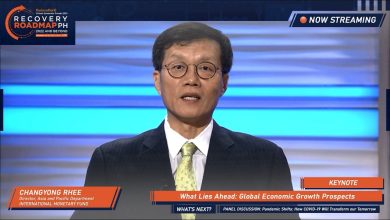Philippines says China trespassing broke sovereignty

THE PRESIDENTIAL palace on Wednesday said China violated Philippine sovereignty when one of its naval vessels entered the country without permission on Jan. 29 to Feb. 1.
“Following an investigation, the Department of Foreign Affairs (DFA) has determined that these actions violate national sovereignty,” palace spokesman Jose Martin M. Andanar told a news briefing.
Mr. Andanar said DFA had “taken appropriate diplomatic action.” “The DFA summoned the Chinese ambassador to lodge a diplomatic protest regarding this incident.”
“While engaging in diplomacy in dealing with China, the President will always protect our territory and uphold our national interest,” he added, referring to President Rodrigo R. Duterte.
Philippine Defense Secretary Delfin N. Lorenzana on Tuesday said the Chinese ship entered the Sulu Sea to spy on the recent joint naval exercises between the Philippines and United States, contrary to China’s claim of innocent passage.
“In intel, that is following and watching,” he told reporters, according to local media. “The ship was shadowing the Philippine-US naval exercise in the Sulu Sea.”
Mr. Lorenzana noted that while he does not find the incident “really disturbing because the vessel did not do any dangerous thing,” the act of monitoring the Philippines’ naval exercises with its former colonizer contradicts China’s claim of innocent passage.
“If it was an innocent passage, it would not take half a day to traverse Balabac Strait to northern Palawan,” he added.
The South China Sea, a key global shipping route, is subject to overlapping territorial claims involving China, Brunei, Malaysia, the Philippines, Taiwan and Vietnam.
Mr. Duterte led a foreign policy pivot to China when he took office in 2016. He has been accused of gambling Philippine territories to appease China, from which he got about P1.2 trillion in investment and loan pledges to boost big-ticket infrastructure projects. But critics said few have materialized.
His predecessor, the late Benigno S.C. Aquino III, led the Philippines in suing China before a United Nations-backed tribunal due to its island-building and military activities in Philippine-claimed areas in the waterway.
In 2016, the international court favored the Philippines by voiding China’s claim to more than 80% of the waterway based on a 1940s map in a decision that China has ignored.
The Philippines is set to hold national elections on May 9. Political analysts have said the country’s sea dispute with China is a major election issue.
Fitch Solutions Country Risk and Industry Research said in a report last year that Philippine presidential frontrunner Ferdinand “Bongbong” R. Marcos, Jr. “appears one of the few candidates to agree with Duterte’s policy of engagement.”
Local civic groups and foreign policy experts have accused him of parroting China’s mantra in its sea dispute with the Philippines.
Mr. Marcos’ main rival, Vice President Maria Leonor “Leni” G. Robredo, has said the next government should be uncompromising when it comes to the South China Sea dispute. She said Mr. Duterte’s successor should not deal with Beijing until it recognizes the 2016 arbitral ruling.
Presidential bets Senator Panfilo “Ping” M. Lacson and labor leader Leodegario “Ka Leody” de Guzman have cited the need for diplomacy in dealing with China, including collaboration with Southeast Asian neighbors and middle powers like Japan and Australia.
Manila Mayor Francisco “Isko” M. Domagoso, another presidential candidate, has sought increased military presence in the South China Sea. — Kyle Aristophere T. Atienza




